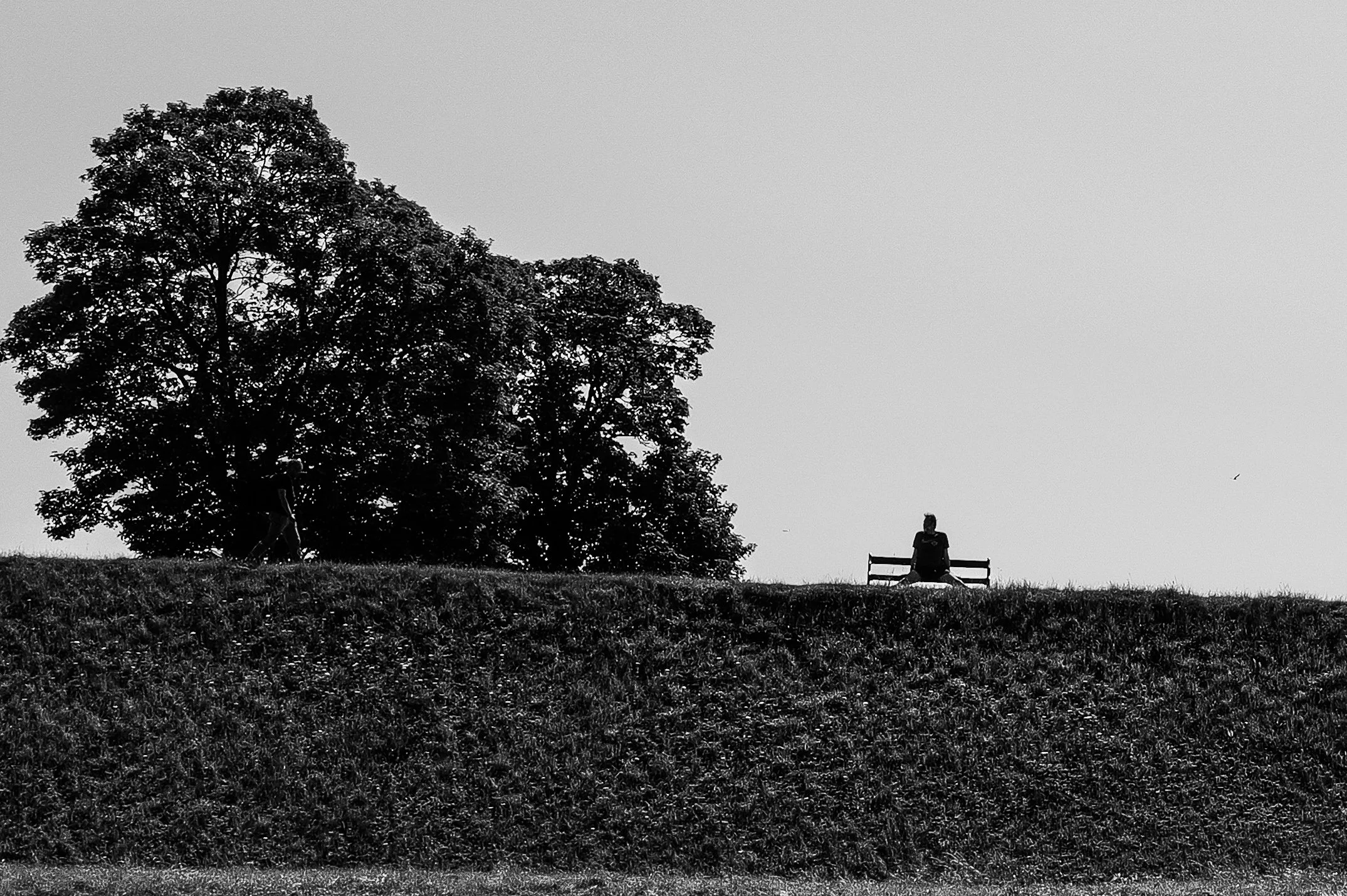The Clown in the Burning Theater: Søren Kierkegaard and the Paradox of Living Forward
The Drama of Existence
Copenhagen, 1855. A man with a hunched back walks through the city streets, mocked by children. Søren Kierkegaard - philosopher, writer, prophet of a new age. He sees the fire smouldering in the foundations of his era: the complacency of bourgeois Christianity, the illusion of systematic philosophy, the flight into anonymous masses.
He shouts out his warning - and earns applause. People take him for a witty entertainer.
Strolling through today's Copenhagen, one inevitably encounters traces of this man. And when you read him again, you discover: his insights are frighteningly relevant.
Søren Kierkegaard. June 2025
"A fire broke out backstage in a theater. The clown came out to warn the public; they thought it was a joke and applauded. He repeated it; the acclaim was even greater. I think that's just how the world will come to an end: to general applause from wits who believe it's a joke."
A Calendar Wisdom with Depth
My best friend Volker Maiborn has another Kierkegaard quote in his LinkedIn profile: “Life can only be understood backwards, but it must be lived forwards.” At first glance, you might dismiss this as one of those calendar wisdoms that flood our social media feeds daily. But behind it lies one of the deepest insights of existential philosophy.
Understanding Backwards, Living Forward
In this single sentence, Kierkegaard captures the fundamental paradox of human existence. We are beings who must make decisions: now, in this moment — without knowing what they will mean. Only later, in retrospect, does meaning emerge.
This is not theoretical knowledge, but existential reality. Every day we face decisions: our career, our partner, the city where we want to live. All these decisions we make “forward” - without guarantee, without complete knowledge of their consequences.
But when exactly does this “living forward” occur? Not in chronological time, which passes uniformly. But in special moments - moments that Kierkegaard calls the “instant.”
The Instant as Touch of Eternity
For Kierkegaard, the “instant” is more than just a brief time span. It is the qualitative leap in which eternity breaks through time. In the moment of authentic decision, a person stands simultaneously in time (with their history, their circumstances) and before eternity (with the infinity of their possibilities).
Here occurs what no system can grasp: the birth of the self through decision. The self is not something we “have,” but something we become — again and again, in every moment of authentic choice.
But this instant of decision is by no means euphoric or triumphant. On the contrary: it is accompanied by a fundamental feeling that Kierkegaard analysed with rare precision.
The Anxiety of Freedom
“Anxiety is the dizziness of freedom.”
Kierkegaard discovers: anxiety is not fear of something specific. Anxiety arises from sheer possibility itself. When I stand at an abyss, I don't just fear falling — I'm startled by the possibility of jumping. Anxiety emerges from the recognition: “I could — and nothing prevents me except myself.”
Copenhagen, June 2025
In the instant of decision, this anxiety culminates. All possibilities stand before me simultaneously. I must choose - now - but I cannot completely foresee the consequences. This is the existential shock: time presses, but eternity opens.
The Leap as Response
Kierkegaard's answer to this dilemma is the “leap.” Not from ignorance (then it would be mere chance), not from complete knowledge (which doesn't exist), but from the passion of existence. The leap is the response to anxiety: not its overcoming, but its fulfilment.
The Individual Against the Mass
In an age of democratization and mass movements, Kierkegaard develops a radical counter-concept: “The Individual.” Not to be misunderstood as individualism, but as authentic existence before God and before oneself.
“The crowd is untruth,” he writes. Why? Because in the mass, existential responsibility disappears. One can hide behind “People say,” “People do,” “People think.” But the decision of who I want to be cannot be taken from me: it is unrepresentable, untransferable, radically my own.
The Burning Theatre of Our Time
Kierkegaard's clown metaphor has lost none of its relevance. Who tries today to warn of real dangers - and is misunderstood as an entertainer? Who calls out the truth and reaps applause instead of attention?
Perhaps this is Kierkegaard's lasting lesson: that truth is often recognized only in retrospect, but we must still find the courage to live forward. Not despite uncertainty, but in accepting the existential task of choosing anew in every moment who we want to be.
The clown continues calling his warning. The audience applauds. The theatre burns. And we must decide - forward, without guarantee, but with all the passion of what Kierkegaard called “existence.”

